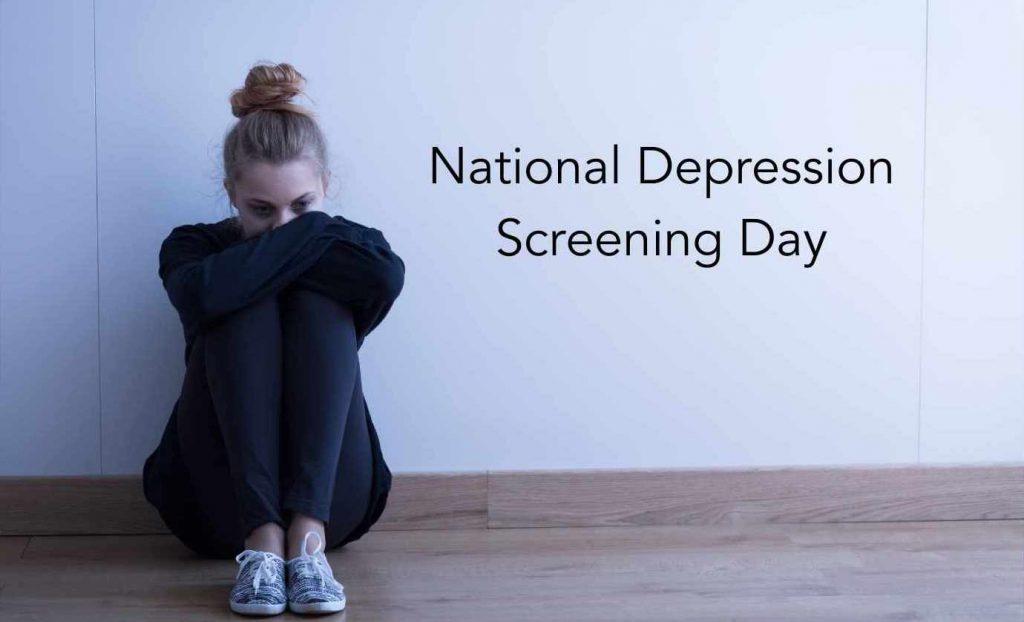Each year on October 8th, we observe National Depression Screening Day (NDSD). It’s an annual opportunity to raise awareness of depression, its causes and symptoms, and to fight the stigma associated with this common mental health condition.
In addition to those elements of awareness and education, NDSD also provides a platform for people struggling with depression to get support, or to just feel supported and represented.
National Depression Screening Day puts crucial emphasis on the fact that so many of us deal with some form of depression and/or anxiety. To put a number on it, over 264 million people around the world suffer from depression.
Statistically speaking, it’s more likely that you know someone that deals with depression than not. However, an unfortunate stigma and misunderstanding still cling to the condition.
Though there is much more freedom of expression and acceptance surrounding mental health than there was even 5 years ago, there’s still a lot of progress to be made.
Many remained inclined to hide their depression, an all too common decision that can be made for a variety of reasons, such as:
- An individual feels their experience will not be heard or understood by those around them
- An individual feels ashamed of their depression based on how mental health is considered in their environment
- An individual doesn’t have the resources or clear paths for support and/or treatment
- An individual doesn’t know they are dealing with depression and/or anxiety
That’s where NDSD plays its important role in the collective effort to minimize these obstacles for anyone struggling with depression.
Numbers 1 and 2 are things that can be remedied by educating the public on the reality of mental health and depression.
Number 3 is a problem that will be continually improved by the platform and resources provided by efforts like NDSD, World Mental Health Day, and Mental Illness Awareness Week.
And, in the spirit of this annual occasion, Number 4 is an issue that can be helped by a depression screening.
What is a Depression Screening?
A depression screening is an assessment that helps determine if someone is experiencing symptoms of depression.
It is important to note that such screening tools, often in the form of an online test, are not conclusive diagnostic assessments.
Depression screenings are best utilized by sharing the results with a relevant healthcare provider as part of a larger treatment effort. However, in the moment, a depression screening can provide valuable clarity on whether you are experiencing symptoms of depression.
Depression is no joke, so being able to instantly access a screening tool is such a positive development in the mental health environment.
Unsure if you should take a depression screening? Well, taking one certainly can’t hurt.
Access these depression screenings now:
Screening for Depression from Anxiety and Depression Association of America
Depression Test from Mental Health America

Depression, Mental Health in a Post-Pandemic World
The work won’t stop until depression is unanimously treated as a valid, respected mental health condition. In other words, the work won’t stop until a depression screening is as common and standard as a blood pressure test.
October is also home to Mental Illness Awareness Week (Oct. 4-11) and World Mental Health Day (Oct. 10th). Along with NDSD, this month that puts such a spotlight on mental health feels very needed in 2020.
We’ve already explored the unique mental health challenges that COVID-19 presents. If you’ve experienced more stress, worry, and/or anxiety since the pandemic began, this article can provide some context as to where those feelings may be coming from. If you hadn’t noticed already, pandemic stress can be a potent trigger for depression symptoms.
Unfortunately, experts expect a “second wave” of pandemic-induced mental health issues. The imminent demand for more mental health support in the coming weeks and months will further overwhelm a mental health system that was already overwhelmed well before COVID-19.
We do not mean to alarm you with this rather somber news. Instead, we hope it encourages you to address your mental health before that gets even more difficult to do so.
Whether that’s getting back to see your therapist, or starting with a depression screening, we deserve all the self-love and care we can give ourselves as we continue to face the pandemic.


